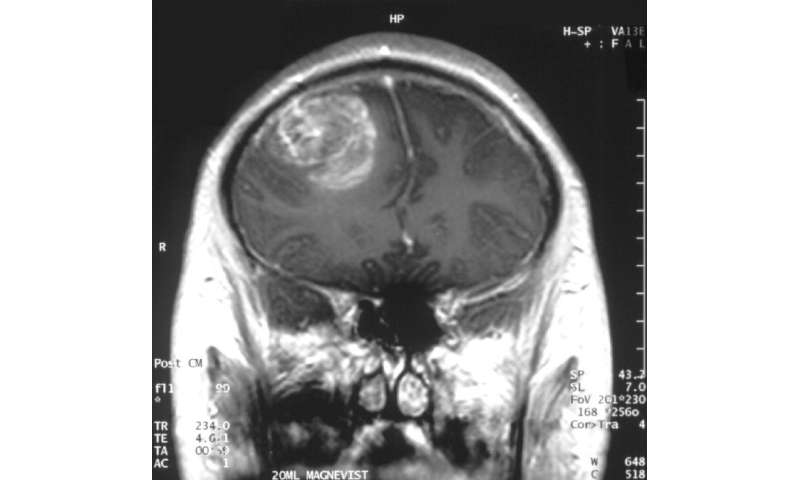
MALT1 blockers have long been in clinical use for the treatment of blood cancers. A study suggests that these drugs could potentially also be developed as a treatment option for glioblastoma, the most common and lethal type of brain tumor.
For a long time, cancer research has largely focused on so-called oncogenes—genes that can cause cancer when mutated. While targeting these genes has led to the successful development of a number of valuable drugs, this approach is hampered by the fact that tumors often become resistant to these treatments.
A study conducted by Julie Gavard at the Université de Nantes, CNRS, INSERM, France, and her team, published today in the EMBO Journal, is now based on a different concept, termed non-oncogene addiction. During disease progression, cancer cells become strongly dependent on normal genes and cell functions to survive. These genes could thus serve as potential targets to attack tumor growth more efficiently. A gene called mucosa-associated lymphoid tissue l (MALT1), for example, is highly active in lymphoma, a type of blood cancer, and blocking MALT1 causes lymphoma cells to die. MALT1 blockers have been viewed as a promising new treatment for lymphomas.
The researchers now addressed the role of MALT1 in solid tumors, namely glioblastoma. Using data from The Cancer Genome Atlas, a molecular characterization of over 20,000 primary cancers, they revealed that MALT1 levels strongly correlate with patients’ survival in brain cancer—patients with less MALT1 tend to live longer.
Source: Read Full Article
